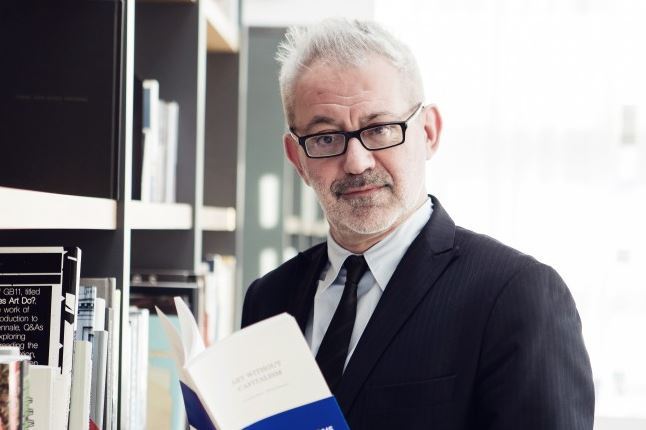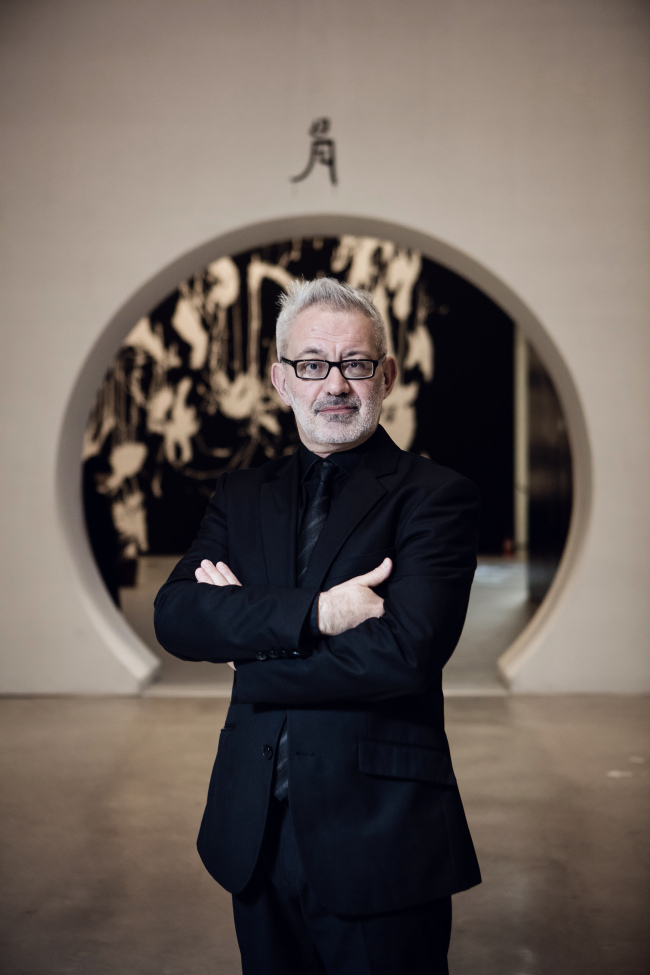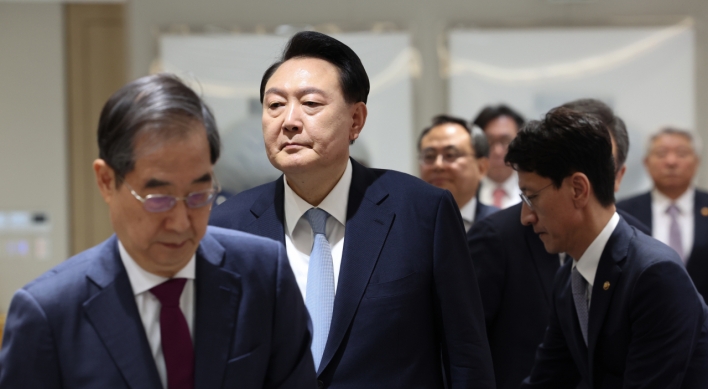[Herald Interview] MMCA director Bartomeu Mari looks back on 3-year term, looks ahead to coming years
By Shim Woo-hyunPublished : Sept. 2, 2018 - 16:20
Nearing the end of his three-year tenure as the director of the National Museum of Modern and Contemporary Art, Korea, Bartomeu Mari is still thinking of ways to improve the nation’s public museum.
“I hope I learned to adapt to the Korean cultural specificities in a respectful way,” Mari said during an interview held at his office last Monday.
“I was asked to come here to make major transformations and improvements and make this museum one of the best in the world. Institutions, we know, are resistant to change and such a practice has been settled for a long time. It takes patience and endurance for a change,” said Mari, emphasizing how short a three-year term really is. Once it expires, it can be extended for one or two years, or renewed for another three. A decision about Mari’s tenure is expected in September.
“I hope I learned to adapt to the Korean cultural specificities in a respectful way,” Mari said during an interview held at his office last Monday.
“I was asked to come here to make major transformations and improvements and make this museum one of the best in the world. Institutions, we know, are resistant to change and such a practice has been settled for a long time. It takes patience and endurance for a change,” said Mari, emphasizing how short a three-year term really is. Once it expires, it can be extended for one or two years, or renewed for another three. A decision about Mari’s tenure is expected in September.

“With an institution the size of MMCA Korea, delivering tangible results is only possible with a much longer exercise. Three years is nothing. In order to show what I am capable of doing, I need time and instruments, the necessary budgets, very skilled teams, an organization aligned with the director. We are trying to do very deep transformations of MMCA and I have very clear ideas of what needs to be done and how to improve the museum’s conditions and results. I am ready to do it,” Mari said.
Thanks largely to Mari’s global network in the art world, the MMCA has made tangible achievements.
Making Korean art approachable and relatable abroad has been a particular focus. “Our priority is the Korean artists. We want our Korean artists’ exhibitions to travel to other museums. We are learning how to promote them, how to negotiate, how to convince others of the quality of our artists, exhibitions and collections,” said Mari.

A number of the museum’s publications are being sold at venues abroad, and some of its exhibitions are expected to travel abroad as well. “I want the majority -- ideally all of them -- of our publications to be of international quality, visible in the best bookshops in the world and acquirable online,” Mari said.
The museum is also currently endeavoring to bring the Yun Hyong-geun exhibition to the Fortuny Museum in Venice to coincide with the 2019 Venice Biennale, Mari said. “Civilization. The Way We Live Now,” an exhibition that is set to open in October at the Gwacheon location, will also have an international tour at world-class institutions, the museum said.
“The Bauhaus has been the Holy Grail of modernity that dominated the globe. Now is the time we tell the world that Asia, and Korea in its front line, has something new to say about modernity, and MMCA should lead the production and expansion of this discourse,” Mari said.
At the same time, he pointed out some hurdles that need to be overcome.
“Eye-opening exhibitions cannot be done in an improvised way. I have heard that some exhibitions in the past were produced in three months. In a serious museum, this would be considered a crime. Such a practice was in place for such a long time in MMCA. So far, we have put our best efforts to create a new practice where in-depth research, exhibition planning and acquisition process form a virtuous cycle,” he said. The implementation of the museum’s mid-and long-term plan, announced in June, requires more time, Mari explained.
Mari also addressed the limits of museum directors’ discretionary authority.
“The directors of MMCA faced (extraordinary) limitations. The field of decision and action is very reduced, in ways unthinkable in the West. The short term of the mandate makes directors highly vulnerable. By the time we know where we are, we have to leave. MMCA Directors cannot be judged by their performance because they do so little,” Mari said.
“Director does not have leverage for organization structure change or staff change even when occasion demands. In fact, it takes longer to change that because each time, it requires an approval from the relevant organizations and amendments to the Acts and rules. Easing the administrative regulations is necessary if we want to become a world-level museum,” Mari continued.
The institution’s legal status as a public entity also imposes limits, as critics have often pointed out.
“Numerous administrative regulations are a very heavy ballast, lead in the wings, not allowing us to fly high,” Mari said.
One such obstacle concerns the budget: Under the State Property Act, the national museum, as a public institution, is not allowed to reinvest any income that it generates from any profit-making business. This restriction limits its opportunities to hold large-scale exhibitions.
Mari also reiterated that he needed time and resources -- not just to grow the museum, but to offer something better to the public.
“I insist that I have worked all my life in public institutions as a civil servant, in Belgium, Spain and Holland, France, the U.K. and Italy. I always worked inside the public administration: public finances, public tenders, public opinion, and public trust. I champion the public function and, specially, public culture: culture of the highest quality accessible to all,” Mari said.
“I want exactly the same successes that a Korean director would want,” Mari continued. “I want to lead an MMCA that is an original and admired producer of exhibitions and projects that are of high interest to the specialists but that are also enjoyed by very large segments of the Korean society. I want that our program attracts the attention of the international specialists, artists, critics, and media, as well as other institutions of the highest prestige,” he concluded.
By Shim Woo-hyun (ws@heraldcorp.com)










![[KH Explains] How should Korea adjust its trade defenses against Chinese EVs?](http://res.heraldm.com/phpwas/restmb_idxmake.php?idx=644&simg=/content/image/2024/04/15/20240415050562_0.jpg&u=20240415144419)









